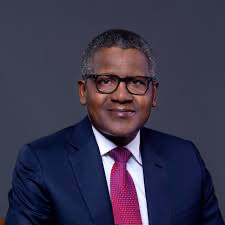At a recent gathering of the Afreximbank Annual Meetings and AfriCaribbean Trade & Investment Forum in Nassau, The Bahamas, Aliko Dangote, the President of the Dangote Group, revealed ambitious plans to expand the storage capacity of his refinery by an additional 600 million liters. This expansion will push the facility’s total storage capacity to an impressive 5.3 billion liters. Currently, the Dangote Petrochemical Refinery boasts a storage capacity of 4.78 billion liters for refined petroleum products, but this enhancement marks a significant step forward in its operational capabilities.
When questioned about the potential impact of his refinery on the pump price of petrol, which currently hovers around ₦700 per liter, Dangote refrained from making any definitive promises. Instead, he recounted the notable impact his company had on the diesel market. Initially, diesel prices were as high as ₦1,700 per liter. However, once Dangote’s diesel entered the market, prices fell to ₦1,200 per liter, and even further to ₦1,000, marking a more than 60 percent reduction. This example underscores Dangote’s influence on the market, yet he clarified that the issue of gasoline pricing is more complex and primarily managed by the government.
Dangote emphasized the strategic importance of the refinery as a reserve for refined products. He pointed out that Nigeria lacks strategic reserves for petrol, a precarious situation that his refinery aims to address. With the expansion, the refinery will effectively serve as a strategic reserve for the nation, enhancing energy security and stability.
Discussing the challenges faced in securing crude oil for the refinery, Dangote revealed that international oil companies were initially skeptical of his ability to succeed with a refinery boasting a capacity of 650,000 barrels per day. This skepticism translated into difficulties in accessing crude oil. He likened the resistance he faced to that of entrenched interests in a system resistant to change, particularly those profiting from the status quo.
Despite these obstacles, Dangote remained optimistic, viewing the resistance as a temporary phase. He expressed confidence that the refinery, crucial not only for Nigeria but also for the sub-region and the continent, would ultimately prevail. He has been importing crude oil from the United States to ensure a steady feedstock for the refinery, demonstrating his commitment to overcoming these challenges.
A significant concern highlighted by Dangote is the importation of dirty fuels into Nigeria. He urged the Federal Government to enforce regulations to halt this practice, which he blamed for a rise in cancer cases in the country. The high sulfur content and pollutants in imported fuels pose serious health risks, a situation that Dangote believes needs immediate attention and action from regulators.
On a broader scale, Dangote sees his refinery playing a crucial role in providing cheaper fuel to the Caribbean, where energy costs are notably high. He proposed setting up a terminal in the region to facilitate this, projecting that it would stimulate economic growth by reducing energy costs. This vision aligns with his broader strategy of leveraging the refinery’s capacity to benefit regions beyond Nigeria.
Reflecting on the journey of building the refinery, Dangote shared an anecdote about a conversation with Khalid Al-Falih, a former Minister of Energy in Saudi Arabia. Al-Falih had advised against the project, citing the challenges faced even by major oil corporations and sovereign nations in building such large-scale refineries. However, Dangote remained undeterred, confident in his vision and determined to proceed despite the formidable challenges.

Dangote’s determination faced numerous tests, not least from what he described as “mafia” interests within the oil industry, both locally and internationally. These groups, he noted, attempted various strategies to sabotage the $19 billion refinery project. During the COVID-19 pandemic, some international banks even tried to push Dangote into defaulting on his loans to derail the project. Despite these efforts, with support from institutions like Afreximbank, Dangote persevered.
Financially, Dangote revealed significant progress in repaying the $5.5 billion loan taken for the refinery. To date, $2.4 billion has been repaid, reflecting strong financial management and commitment to the project’s success. This repayment milestone is particularly notable given the delays and challenges that extended the project’s timeline.
Regarding energy independence, Dangote emphasized that his companies do not burden the national grid. Instead, they generate around 1,500 megawatts of power for self-consumption. He suggested that power production should ideally be handled by dedicated entities, allowing industrial operations to focus solely on their core activities. This approach, he argued, would create a more efficient and reliable power supply framework, benefiting the broader industrial sector.
In summary, Aliko Dangote’s remarks at the Afreximbank Annual Meetings and AfriCaribbean Trade & Investment Forum shed light on the ambitious and strategic plans for his refinery, the challenges faced, and the broader implications for Nigeria and beyond. His unwavering commitment to the project, despite formidable obstacles, underscores his vision for transforming the energy landscape, not just in Nigeria, but across the continent and into the Caribbean. As the refinery moves closer to full operational capacity, its impact on fuel prices, energy security, and economic growth will be closely watched by stakeholders around the world.




